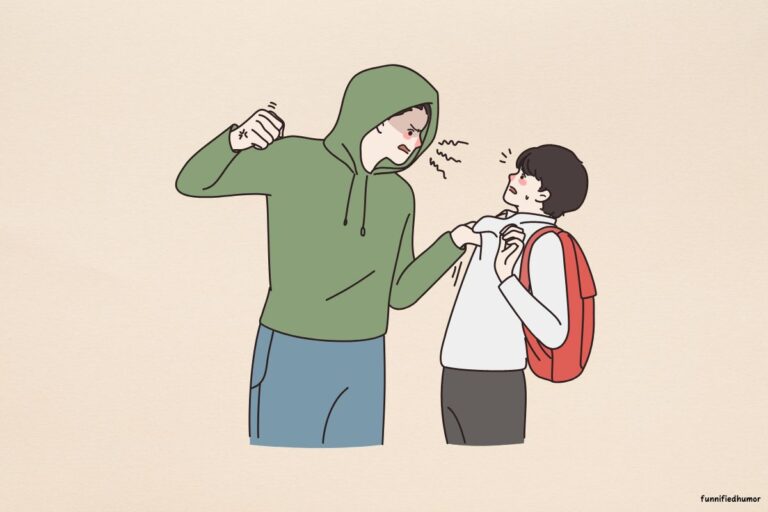3 Short Stories About Change

From the untouched streets of sleepy towns to the bustling energy of ever-evolving cities, the world around us is in a constant state of flux.
While some changes are evident and expected, others leave us puzzled, questioning the very fabric of our reality. And then there are stories of change that defy logic, reminding us of the mysterious forces that might be at play in the shadows.
In today’s blog post, we delve deep into narratives that encapsulate the essence of change, in its most mysterious and enigmatic forms. These are tales not just of transformation, but of resilience, hope, and the human spirit’s unwavering drive to adapt and endure.
Whether you’re seeking inspiration or simply a good old-fashioned story, these chronicles of impermanence are bound to captivate. Join me on this journey, as we explore the ever-changing landscapes of life, both tangible and intangible.
Stories about Change
1. The Altered Frame
In the small town of Ellisville, every resident had a painting—a peculiar one. At birth, parents were handed a painting depicting a serene landscape. This painting would hang on the wall of the child’s room, and as the years passed, the scenery would change. Mountains would rise, rivers would divert, and forests would grow. Every change in the painting symbolized a significant change in the individual’s life.
Jack’s painting had always been a stable meadow with a stream flowing. Until one morning, he woke up to see a silhouette in the distance.
“Did you add this to my painting, Ellie?” he asked his wife, as she prepared breakfast.
She glanced over. “Why would I? You know we’re not supposed to tamper with these.”
The mysterious figure was small, seemingly far off in the distance, but unmistakably there.
“Maybe it signifies a new person in your life,” Ellie mused.
But as days passed, the silhouette grew larger, and the sense of dread in Jack grew with it. The previously serene meadow now felt ominous.
One evening, while Jack was at the local pub, he met an old friend, Clara. She had returned to Ellisville after years of being away.
“Jack, remember how we used to wonder about those paintings? I’ve been researching them,” Clara whispered, pulling him aside.
“You mean you’ve found out why they change?” Jack’s curiosity was piqued.
“Not exactly. But I’ve heard rumors of a keeper—a guardian who knows their secrets.”
As Jack was about to press her for more details, he noticed a man observing them, a man whose eyes seemed strangely familiar. The man quickly left, leaving Jack with an uneasy feeling.
Over the next few days, the silhouette in Jack’s painting came closer. It now resembled the man from the pub. But before Jack could figure out the connection, Clara vanished. The only trace of her was a note at Jack’s doorstep: “Find the keeper. He holds the answers.”
Determined, Jack started his search. The townspeople whispered of the keeper living beyond the woods, in a place where no one dared to go.
One night, armed with determination, Jack ventured into the woods. Hours felt like minutes, and just when he was about to give up, he stumbled upon an old cabin.
Inside, he found the keeper—an elderly man with the same eyes Jack had seen at the pub.
“You’ve come,” the keeper began, “because your painting, your life, is in danger.”
“I don’t understand,” Jack stammered.
“The paintings don’t just predict change. They can be influenced. If someone knows how, they can alter one’s fate. The man in your painting? He’s manipulating your life.”
A chill ran down Jack’s spine. “Why?”
“For control. He tried to do it with Clara, but she got away.”
“How do I stop him?”
“You must confront him in your painting.”
Jack was perplexed. “Inside my painting?”
The keeper handed Jack a potion. “This will allow you to enter. Remember, once inside, face your fears. Only then can you break his influence.”
Jack drank the potion and felt the world twist and spin. When he opened his eyes, he stood in his meadow. In front of him was the mysterious man.
“Why are you doing this?” Jack demanded.
“Power, control,” the man smirked. “With every painting I influence, I gain more strength.”
The landscape around them became more chaotic—storms brewing, trees toppling. Jack felt his life force draining. But he remembered the keeper’s words.
Facing the man, Jack shouted, “You may try to change my painting, my life, but you can’t change who I am!”
With that declaration, a burst of energy emanated from Jack. The mysterious man screamed in agony and vanished.
When Jack woke up, he was back in his room. The painting was back to its serene self.
He shared his adventure with Ellie, who hugged him tight. “I always knew you were strong,” she said.
Days later, Clara returned, with a grateful smile. “You did it, Jack. You saved us all.”
From that day, the people of Ellisville knew that while paintings might signify change, the true power of destiny rested in their own hands.

2. The Threads of Time
In a timeless hamlet named Linton, people’s lives were intertwined not by relationships or experiences, but by threads. Each resident possessed a spool, which represented their lifespan. As days passed, the thread on their spool would gradually unwind.
Olivia, a local seamstress, was known for her expertise in handling threads, but even she could not understand the spools of life. Hers had always been a soft shade of lavender, a soothing hue. But recently, she noticed a sudden shift—the thread had started to change its color, developing a midnight black streak.
Disturbed, Olivia consulted her best friend, Marcus. “Have you noticed any change in your spool?” she asked.
Marcus held up his spool, which was a calm sea-blue. “Not at all. Why?”
She showed him her changing thread. “This has never happened before. Do you think it’s a sign?”
Their conversation was interrupted by a stranger, whose silver cloak shimmered under the dim lights of the tavern. He approached them with a deliberate pace.
“You wish to understand the threads?” the stranger asked in a low, melodic voice.
Both nodded hesitantly.
“Meet me at the Weavers’ Cliff at midnight,” he whispered, and then vanished into the crowd.
Later that night, under a veil of stars, Olivia and Marcus reached the cliff—a place rumored to be the point where all threads originated. There, they found the stranger weaving on a colossal loom.
“Welcome,” he said without looking up. “I am Orion, the Weaver of Fate.”
“Is my life in danger?” Olivia asked, pointing to her altered thread.
Orion paused, looking at the dark streak. “Not danger, but change. A pivotal moment approaches. But what concerns me more,” he motioned to the loom, “is this.”
They looked closely and saw that many threads were fraying, some ominously dark.
“What does it mean?” Marcus inquired.
“The balance of Linton is compromised. Someone’s tampering with the Threads of Time, causing lives to intertwine in ways they shouldn’t.”
Determined to help, Olivia and Marcus set forth to investigate. They started hearing whispers of a mysterious figure visiting homes at night, leaving a trail of blackened threads.
One evening, as Olivia was inspecting her spool, the shadowy figure appeared. It was a woman, draped in threads of every shade.
“I am Lysandra,” she declared. “I once lived in Linton, but was banished for trying to control my fate.”
“You’re the one changing the threads!” Marcus exclaimed.
Lysandra smiled. “All I want is to weave my own destiny. Isn’t that what everyone desires?”
“But at what cost?” Olivia asked. “You’re damaging the very fabric of our lives.”
Lysandra’s face darkened. “Then maybe it’s time for a new fabric.”
Suddenly, threads from her cloak reached out, binding Olivia and Marcus. They struggled, but to no avail. Just when all hope seemed lost, Orion appeared, wielding a gleaming silver shears.
With a swift motion, he cut the threads restraining them. A fierce battle ensued between the Weaver of Fate and the outcast.
Finally, using his shears, Orion snipped a key thread from Lysandra’s cloak. She screamed, turning into a cascade of threads that scattered into the wind.
The balance was restored. The frayed threads on Orion’s loom healed and returned to their natural colors, including Olivia’s.
Grateful, Olivia asked, “How can we ever repay you?”
Orion smiled, “Cherish your threads, your life. Don’t try to alter fate but embrace the changes it brings.”
Back in Linton, the tale of that night became legendary. The townspeople realized that while they couldn’t control their threads, they could control how they lived each day. The mystery of the threads remained, but the lesson was clear: Embrace change, for it is the only constant in the weave of fate.

3. Fading Shadows
Margaret, a petite woman in her late sixties, gazed out of the window of her house onto the cobblestone streets of Anvil, a quiet town where she had spent her entire life. A gentle wind rustled the leaves of the trees, whispering tales of old and new.
“Morning already,” she murmured, tugging her woolen shawl closer. The town clock had chimed four times, signaling the start of another day. But there was something amiss. Margaret couldn’t place her finger on it.
A knock echoed through her quiet house. She opened the door to find young Emma, a girl of sixteen, panting.
“Mrs. Margaret! It’s happened again! Old Ms. Bailey’s house, it’s… it’s just not there anymore!”
Margaret squinted. “You mean, she’s moved?”
“No!” Emma caught her breath. “The house itself. It’s gone. Like it never was.”
Margaret frowned. This wasn’t the first time something had disappeared in Anvil. Just last month, the local library, a century-old building, had vanished overnight. The townspeople woke up to find an empty lot where it once stood.
“Is everyone okay?” Margaret asked, concern edging her voice.
Emma nodded. “Yes, but people are scared.”
Margaret decided to investigate. She visited the empty spot where Ms. Bailey’s house had stood. Grass grew there, as if the house had never existed. The neighbors gathered around, murmuring in hushed tones.
“Something or someone is wiping away parts of Anvil,” whispered one.
“And it’s becoming more frequent,” added another.
As days passed, more structures started disappearing. First, it was a lamppost, then the local bakery, followed by the school. With every disappearance, the town’s distress grew. Many thought of leaving Anvil, but the roads leading out of the town had disappeared too.
Late one night, Margaret heard a soft knock. It was Emma, her eyes wide with fear.
“They took my house, Mrs. Margaret,” she sobbed. “My parents are okay, but they’re thinking of camping in the woods.”
Margaret hugged her tight. “We’ll figure this out.”
In her quest to unravel the mystery, Margaret visited the town’s archives, poring over records. She stumbled upon an old diary, its pages yellowed with age. It was written by a certain Samuel Anvil, the town’s founder.
Margaret read aloud, “Year 1852, I, Samuel, have made a pact. To build the greatest town ever, I traded with The Shadows. They gave Anvil its form, and in exchange, they would reclaim their parts, piece by piece, in the years to come.”
Margaret looked up, horrified. “The entire town is borrowed,” she whispered. “And The Shadows are taking it back.”
She gathered the townspeople and explained the dire situation. There was panic and chaos. But amidst the mayhem, a voice spoke up. It was old Mr. Turner, the town’s historian.
“Change is inevitable,” he began. “But maybe, if we acknowledge the debt and ask for more time, The Shadows might reconsider.”
The entire town gathered at the town square that night, holding candles, forming a giant circle. They began chanting, their voices merging into a song of hope and plea.
Hours went by, and as dawn approached, a thick mist enveloped the square. Whispers echoed, “The debt is acknowledged.”
When the mist cleared, the town was still there, but there were significant changes. The architecture was different, the streets unfamiliar.
Margaret found herself in a house she didn’t recognize, but photos of her family adorned the walls. Her memories remained unchanged, but the world around her had transformed.
Anvil was given a second chance, but with a new form. The Shadows had allowed change, but on their terms.
Years later, Emma, now older, would tell the story to her grandchildren, “Anvil, as you see, wasn’t always like this. But it’s a testament to our resilience and the fact that change, however mysterious or daunting, is always inevitable.”
And so, in the heart of Anvil, the story became legend – a tale of a town that changed overnight, reminding every generation of the impermanence of life and the inevitable nature of change.





